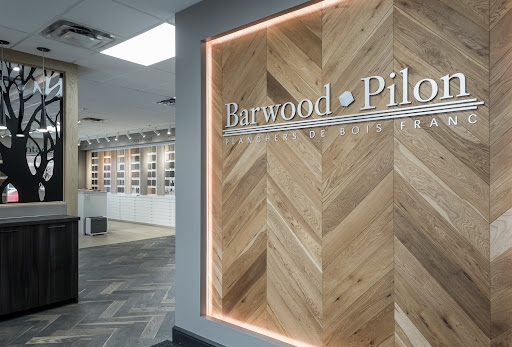How much does a Hardwood Floor Cost?

Learn how the cost of hardwood flooring is really determined and what factors to look for when shopping.
Everyone knows that hardwood floor involves a big investment and everyone would like to know how much hardwood floor costs! Obviously, the cost of the floor varies according to several factors. By carrying out your own research, you have probably gathered several pieces of information, which could be false…
Indeed, many preconceived ideas are circulating online and without the advice of experts, you could be fooled... Our advisers are constantly trying to deconstruct this false information.
To better guide your research, we asked your questions to Samuel Hirsch, an expert at Barwood Pilon. Learn how the cost of hardwood flooring is really determined and what factors to look for when shopping.
It all depends on the manufacturer
Before deconstructing preconceived ideas about the cost of hardwood flooring, there is an important point that I constantly remind my customers:
The cost of the floor depends on the manufacturer.
Several other factors come into play, but the manufacturer will ALWAYS have an influence on the price of your hardwood floor. Where the wood is produced has a big impact on its resale value.
The cost depends on the surface: Myth or reality?
It is true that the surface to be covered will influence the total cost to be spent. By buying in large quantities, you might even get a discount.
But, the fact remains that the surface to be covered is not the most important factor influencing the cost. The manufacturer will have the greatest impact on the amount to be spent.
The cost depends on the quality: Myth or reality?
First, it is important to determine what the quality factors are. Many customers think that the grade of the wood is a guarantee of quality. It's wrong!
The Canadian Wood Council classifies lumber based on several aspects such as knots and grain. Many therefore tend to think that a knotless wood with a straight grain is of better quality and more expensive.
The wood quality does not depend on its grade. It depends on its manufacturer! Yes, some manufacturers produce better quality flooring and yes, their price will be higher. But that has nothing to do with the grade of the wood.
Another preconceived idea is that the quality and resistance of a wood depend on its hardness. It's wrong!
If a client arrives and says to me "I am looking for a hard floor, I was advised to go for maple", I will ask him several questions about his project. The general customer is looking for a resistant floor, for a place with a lot of traffic. It is not the hardness that he must look at, but the finish.
For example, our 2 showrooms have an oak floor. Lots of people go through it every day and the floor is still super nice. Oak really isn't the hardest wood. But its natural finish makes scratches look seamless.
A hardwood is not necessarily stronger and therefore not of better quality.
The cost depends on the type of wood: Myth or reality?
It is true that some species of wood will have a lower resale cost. For example, cherry is a species found in large quantities in Quebec, so it sells for less. It's a matter of supply and demand.
It is true that white oak is more expensive than red oak, but that is only because white oak is more in demand and therefore more "rare". Same thing for walnut.
But don't forget, an oak floor will not have the same price from one manufacturer to another.
The cost depends on the finish: Myth or reality?
Many people think they save money by buying raw wood rather than prefinished wood. In reality, nowadays, far fewer manufacturers specialize in raw wood, so they sell it at the same price as a prefinished floor. Not to mention the additional costs for the varnishing service.
Also, I often remind my clients that a factory varnished floor will always be of better quality. When the varnishing is done by a human, the risk of error is higher.
The cost therefore does not really depend on the finish, it depends mainly on the manufacturer and the entire production.
Engineered wood is more expensive than hardwood: Myth or reality?
It is true that at Barwood Pilon, engineered floors are more expensive, since they spend more time in the factory. The more manufacturing steps, the more expensive the floor. On the other hand, the engineered floor has all the advantages of the hardwood floor in addition to being more stable in terms of humidity variations.
In short…
When shopping for your hardwood floor, the first question to ask is always about the manufacturer. It is the most important!
Compare manufacturers with each other. It is important to invest in a quality floor. Comparing samples is difficult, you have to think about the manufacturer and you need the technical explanations of an expert to fully understand your investment.
Keep in mind that the manufacturer is much more important than the wood type.
At Barwood Pilon we ask the right questions to advise you on the floors you really need.

